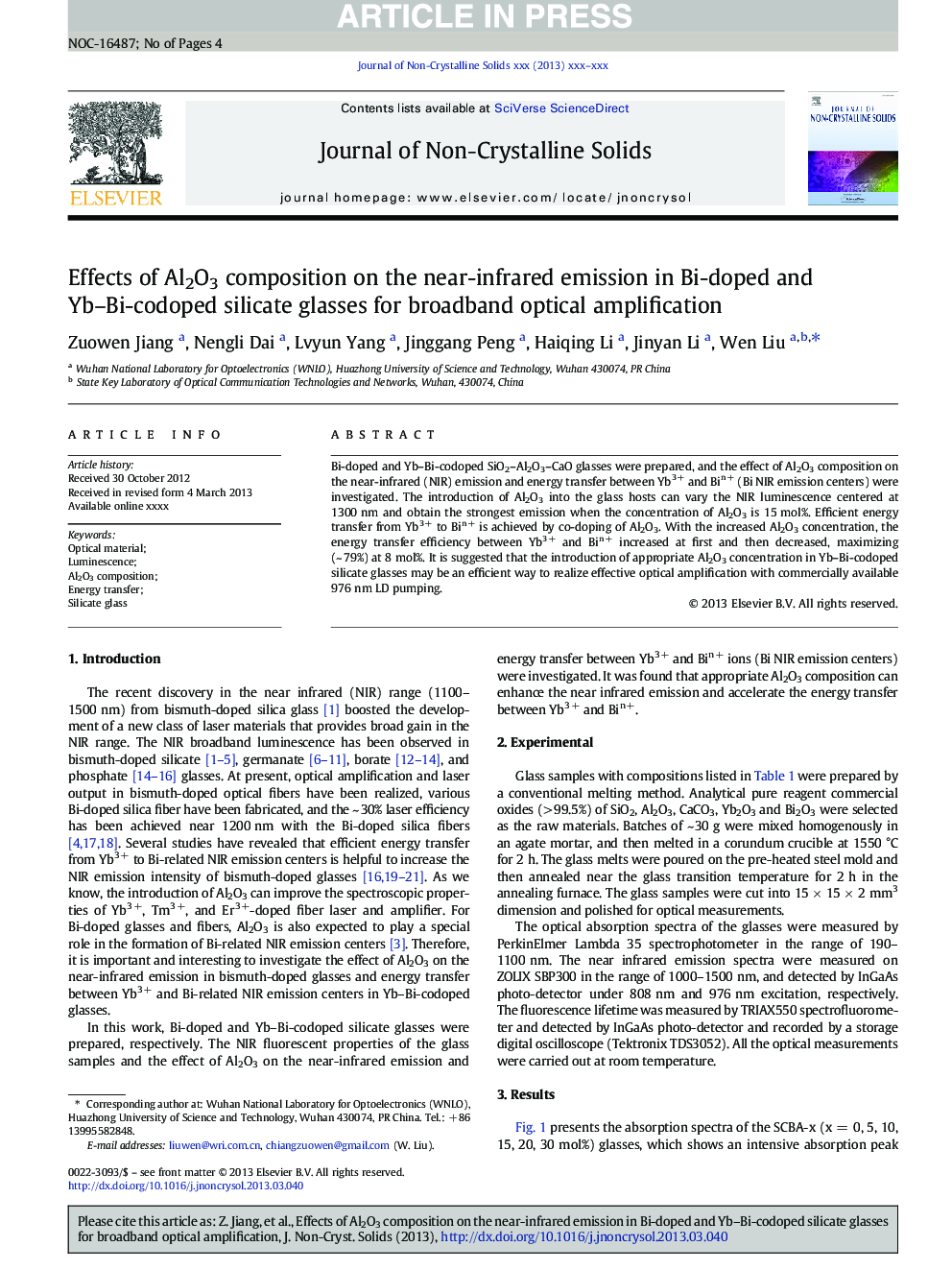| Article ID | Journal | Published Year | Pages | File Type |
|---|---|---|---|---|
| 7902958 | Journal of Non-Crystalline Solids | 2014 | 4 Pages |
Abstract
Bi-doped and Yb-Bi-codoped SiO2-Al2O3-CaO glasses were prepared, and the effect of Al2O3 composition on the near-infrared (NIR) emission and energy transfer between Yb3 + and Bin + (Bi NIR emission centers) were investigated. The introduction of Al2O3 into the glass hosts can vary the NIR luminescence centered at 1300 nm and obtain the strongest emission when the concentration of Al2O3 is 15 mol%. Efficient energy transfer from Yb3 + to Bin + is achieved by co-doping of Al2O3. With the increased Al2O3 concentration, the energy transfer efficiency between Yb3 + and Bin + increased at first and then decreased, maximizing (~ 79%) at 8 mol%. It is suggested that the introduction of appropriate Al2O3 concentration in Yb-Bi-codoped silicate glasses may be an efficient way to realize effective optical amplification with commercially available 976 nm LD pumping.
Related Topics
Physical Sciences and Engineering
Materials Science
Ceramics and Composites
Authors
Zuowen Jiang, Nengli Dai, Lvyun Yang, Jinggang Peng, Haiqing Li, Jinyan Li, Wen Liu,
